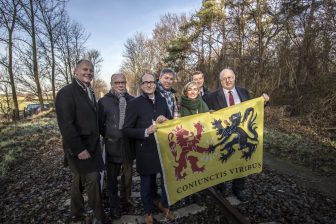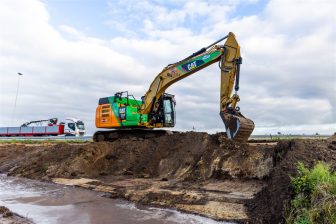World Bank supports water management Bangladesh
Washington, United States of America – The World Bank 2007-09-18 approved a US$102.26 million credit to support the Government of Bangladesh’s efforts to improve national water resources management.
The Water Management Improvement Project is designed to enhance water management by expanding the role of local communities, from planning and design to operations and management. It also aims to improve institutional performance of the country’s principal water institutions ─ Bangladesh Water Development Board (BWDB) and Water Resources Planning Organization (WARPO).
It is estimated that 2 million households will benefit from the project. It is expected reduce crop losses during the pre-monsoon and monsoon periods and increase agricultural production due to improved drainage and flood control and expansion of irrigation.
Bangladesh is prone to recurring natural disasters like floods, erosion, cyclones and tidal surges that result in human casualties and economic losses. Each year, up to 30 percent of the country is inundated, flooding about 6 million hectares. People living in coastal and riverine areas in general are specially exposed to the dangers of natural disasters.
“As we have just learned from the recent devastating floods, management of water resources is critical to mitigate the impact of floods,” said Xian Zhu, World Bank Country Director for Bangladesh. “This project will support rehabilitation and improvement of existing flood control, drainage, and irrigation schemes, which will reduce the vulnerability to future natural disasters”
The project will support rehabilitation and improvement of about 102 existing flood control, drainage, and irrigation schemes and transfer their management to the local communities through Water Management Organizations (WMOs). It will also support measures to improve performance of another 98 existing schemes that do not require major rehabilitation and have functioning WMO’s or similar organizations.
“The long-term objective of the project is to institutionalize a participatory management process for improving performance of all feasible water schemes,” said Masood Ahmad, World Bank Lead Water Resources Specialist and project team leader. “Participation of all stakeholders, especially local communities, from the outset is crucial in order to promote sustainability and to ensure the long-term integration of social and environmental considerations.”
The credit from the International Development Association (IDA), the World Bank’s concessionary arm, has 40 years to maturity with a 10-year grace period; it carries a service charge of 0.75 percent.
For more information on the World Bank in Bangladesh, please visit: http://www.worldbank.org/bd
U las zojuist één van de gratis premium artikelen
Onbeperkt lezen? Profiteer nu van de introductieaanbieding voor € 10,- per maand.
Bent u al abonnee?



